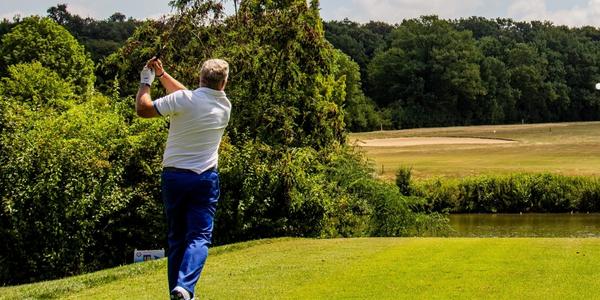
Is Working on Mechanics More Challenging Mentally?
Skill development requires focused repetition to become a habit.
No golfer improves their tee shots by just hitting 200 balls at the driving range.
You need to focus on the change you are trying to make.
You need constant feedback and adjustment when you are making technical changes in the beginning. Improvement or skill development takes time and patience because improvement is never linear.
For that reason, working on your technical game can be frustrating.
One day, you feel like you have mastered your new method. You are seeing great results. You are driving the ball longer and straighter. You begin to feel your hard work is paying off.
Then the next time you play, your tee shots seem worse than before. Now, you feel you have been wasting your time and question if you should abandon your new swing.
When you are working on a new swing, it is essential to understand that your mental game impacts skill development:
*Nothing worthwhile is accomplished overnight – The skill development process can be long and requires patience. Knowing this can help ease excessive expectations and lessen performance-interrupting negative emotions.
*Consistency is the goal, not perfection – If you expect perfection, you are setting yourself up for failure.
*Give yourself credit for positive results or accurate drives. Any other mistakes or bad swings should be seen as feedback or on-the-job learning.
*Take advantage of mental growth opportunities – Every swing attempt also is an opportunity to grow your mental game, especially the skills of focusing and managing emotions.
Before each shot, you have the opportunity to work on your ability to focus and, afterward, the opportunity to maintain your composure.
With this mindset, you can improve your mental game no matter the result of the swing.
Ariya Jutanugarn, the former world No. 1, slid to No. 77 in the Rolex Rankings after notching only two top-10s in 27 starts in 2022.
Ariya Jutanugarn acknowledged she needed a change and began working with her new coach Sean Foley late last year during the 2022 KPMG Women’s PGA Championship.
Ariya, at first, was hesitant to change her swing but knew it was necessary to advance her game.
ARIYA: “For me, I’ve never had a big change before, so it’s been really hard. I’m really stubborn; I don’t like to change anything, but I’ve been doing the same stuff, and it wasn’t working anymore, so I knew I needed to do something different. Everything takes time, but I’m going in the right direction.”
Learning technical skills requires considerable mental skills such as patience, focus, poise, and even mental toughness.
Therefore, a strong mental game is not only a difference-maker during a competitive round but also your best ally when learning technical skills.
When learning new skills, it is best to package patience with persistence. Embrace this general rule: It takes 60 reps a day for 60 days to form a new habit.
Sometimes it can be discouraging to make consistent efforts when you “see” no positive results. Remind yourself that growth is not always visible.
Related Golf Psychology Articles
- How Scheffler Maintains Composure
- How to Bring Your Practice Swing to the Course
- How to Take Your Range Swing to the Course
- Subscribe to The Golf Psychology Podcast on iTunes
- Subscribe to The Golf Psychology Podcast on Spotify
Get the Mental Edge – With Mental Training

Do you perform well in practice, but find yourself under-performing in games? Do you doubt your skills and second-guess yourself under pressure? If so, mental training will help you reach your goals in soccer. Many soccer players have the skill but are held back by low confidence and lack of pregame mental preparation!
You can get expert mental coaching with us from anywhere. Meet with us via Zoom, Skype, FaceTime or phone call. With today’s video technology, we are able to connect with athletes and coaches all over the globe.
Call Us Today to Schedule Your Free 15-Minute Session.
Find Out How You Can Benefit From One-on-One Mental Coaching!
888-742-7225 | 407-909-1700